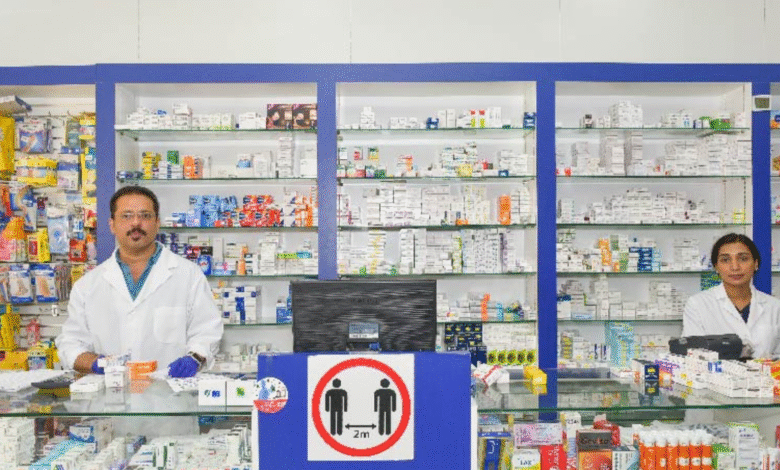Why Advanced Pharmacy Care Isn’t Just a Buzzword—It’s the Future of Medication Support

Let’s face it: the word “advanced” gets tossed around a lot these days. Advanced skincare, advanced coffee makers, advanced socks. It’s usually just code for “new” or “expensive” — sometimes both. But when we talk about advanced care pharmacy or advanced pharmacy services, it actually means something real. Tangible. Game-changing, even.
Because the way people manage their health — especially when it comes to complex, long-term conditions — has shifted. And the old school, transactional model of pharmacy isn’t cutting it anymore.
Gone are the days when a pharmacy’s job ended with counting pills and sticking a label on a bottle. Today, we’re in the middle of a massive evolution. Pharmacies aren’t just drug dispensers. They’re partners in care. They’re tech-savvy, clinically involved, and (ideally) connected to your broader healthcare team.
So what does that really look like? And how can the average patient or care facility tell if a pharmacy is truly advanced — or just putting a shiny label on an old system?
Let’s dig in.
The Rise of Advanced Pharmacy Services
When we talk about advanced pharmacy, we’re not just talking about fancy machines or sleek apps. We’re talking about a smarter, more integrated model of care. This includes services like:
- Medication therapy management (MTM): Personalized reviews of all your medications to check for interactions, duplications, or unnecessary drugs.
- Specialty medication support: For complex conditions like cancer, multiple sclerosis, or rheumatoid arthritis, where meds come with side effects, monitoring needs, and cost hurdles.
- Custom packaging and adherence tools: Because remembering to take 7 different medications at 3 different times every day? Not easy.
- Real-time coordination with doctors, nurses, and caregivers: Especially critical for those in long-term care, assisted living, or home health.
It’s not just more services. It’s a different mindset. One that sees the patient as more than a prescription number.
Where Traditional Pharmacies Fall Short
Let’s be honest — the average retail pharmacy is trying to survive. They’re overwhelmed, short-staffed, and caught between insurers, PBMs, and rising expectations. They do their best, but the model wasn’t built for high-touch, ongoing care. It was built for volume.
That’s why advanced pharmacies are stepping in to fill the gap.
Instead of pushing patients through like an assembly line, they take time to review therapy plans. They help people understand their meds — not just take them. They work with providers to ensure continuity, instead of reacting after the fact.
It’s a subtle shift, but it’s a big one. And it shows up in outcomes — fewer hospitalizations, better adherence, and (surprise!) less frustration.
Real-World Examples of Advanced Care
Let’s say you’re caring for a parent with Parkinson’s. They’re on a complicated medication schedule, and their cognition is starting to decline. Every day feels like a juggling act — did they take their meds? Did they take too many? Did someone forget the refill?
An advance pharmacy service would step in with multi-dose packaging that lays everything out clearly by date and time. They’d sync up refills automatically. They might even have a care coordinator reach out to review how things are going — not because something went wrong, but because it’s part of the service.
Or maybe you’ve just started a new biologic medication that costs thousands per month. A traditional pharmacy might just hand it to you (if your insurance approves it). An advanced care pharmacy? They’ll handle prior authorizations, help you apply for copay assistance, and make sure your labs are getting monitored properly.
That’s what we mean by next-level care.
Technology Meets Human Touch
Advanced doesn’t have to mean robotic. The best advanced pharmacy blend technology with that essential human touch.
They might use smart dispensing systems that track when doses are taken — but they also have a pharmacist on call to explain side effects. They might have a slick web portal — but they also offer regular check-ins if you’re dealing with a new diagnosis or new med routine.
One long-term care nurse I spoke with recently said, “It’s not just about accuracy anymore. It’s about support. Our pharmacy doesn’t just deliver meds — they help us deliver better care.”
That’s the point.
Who Needs an Advanced Pharmacy?
Honestly? Probably more people than realize it.
- Patients with chronic conditions or complex medication regimens
- Families juggling care for aging loved ones
- Facilities like assisted living centers or memory care units
- Clinics managing high-risk patient populations
- Anyone who’s ever stared at a pile of pill bottles wondering, “How is this supposed to work?”
If that’s you? It’s worth finding out if your pharmacy is offering more than just the basics.
How to Tell If a Pharmacy Is Truly “Advanced”
Here’s a quick checklist:
- Do they offer customized packaging that supports med adherence?
- Do they provide clinical support, not just fill-and-bill service?
- Can they handle specialty meds and insurance navigation?
- Do they work with your care team to optimize therapy?
- Do they proactively follow up — or only react when there’s a problem?
If the answer to most of those is yes, congratulations — you’ve found the real deal.
If not, well… there’s room for improvement.
Final Thoughts
Advanced care pharmacy, advanced pharmacy, advance pharmacy service — whatever you call it, the core idea is the same: better medication support leads to better outcomes.
It’s not about bells and whistles. It’s about designing pharmacy care that fits real life. The messy, complicated, human kind.
So whether you’re a caregiver, a clinician, or someone just trying to manage your own meds without losing your mind — it might be time to ask more from your pharmacy.
Because good enough isn’t always good enough.




